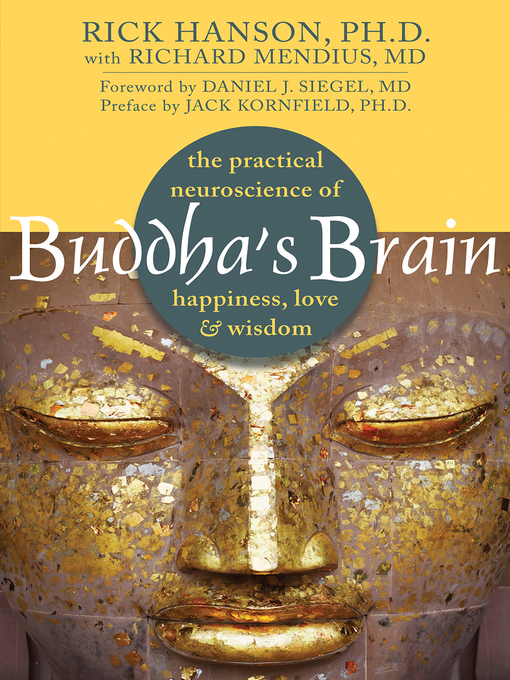
Buddha's Brain
The Practical Neuroscience of Happiness, Love, and Wisdom
کتاب های مرتبط
- اطلاعات
- نقد و بررسی
- دیدگاه کاربران
نقد و بررسی

September 14, 2009
The brain physiology associated with spiritual states has been fertile ground for researchers and writers alike. Neuropsychologist andmeditation teacher Hanson suggests that an understanding of the brain in conjunction with 2,500-year-old Buddhist teachings can help readers achieve more happiness. He explains how the brain evolved to keep humans safe from external threats; the resulting “built-in negativity bias” creates suffering in modern individuals. Citing psychologist Donald Hebb's conclusion that “when neurons fire together, they wire together,” Hanson argues that the brain's functioning can be affected by simple practices and meditation to foster well-being. Classic Buddhist concepts such as the “three trainings”—mindfulness, virtuous action and wisdom—frame Hanson's approach. Written with neurologist Mendius, the book includes descriptions and diagrams of brain functioning. Clear instructions guide the reader toward more positive thoughts and feelings. While the author doesn't always succeed at clarifying complex physiology, this gently encouraging “practical guide to your brain” offers helpful information supported by research as well as steps to change instinctive patterns through the Buddhist path.

September 28, 2009
Hanson and Mendius successfully answer the question: How can you use your mind to strengthen positive brain states and ultimately change your life? Arguing that our ancestors' brains, flooded with adrenaline and cortisol, were wired for survival, the authors reveal how this neurological propensity for high arousal contributes to our present-day chronic illness, depression, and anxiety. Using Buddhism's eightfold path as a model, they illustrate how meditation and relaxation can change our brain's natural tendencies. Pictures illustrate the brain's functions and practical meditation exercises are found throughout. The authors also discuss the importance of diet and nutritional supplements. Verdict An excellent choice for readers wishing to take control of their lives and spiritual well-being. Readers will find practical suggestions along with impressive research about the brain.-Phyllis Goodman, West Chester Lib., OH
Copyright 2009 Library Journal, LLC Used with permission.

























دیدگاه کاربران